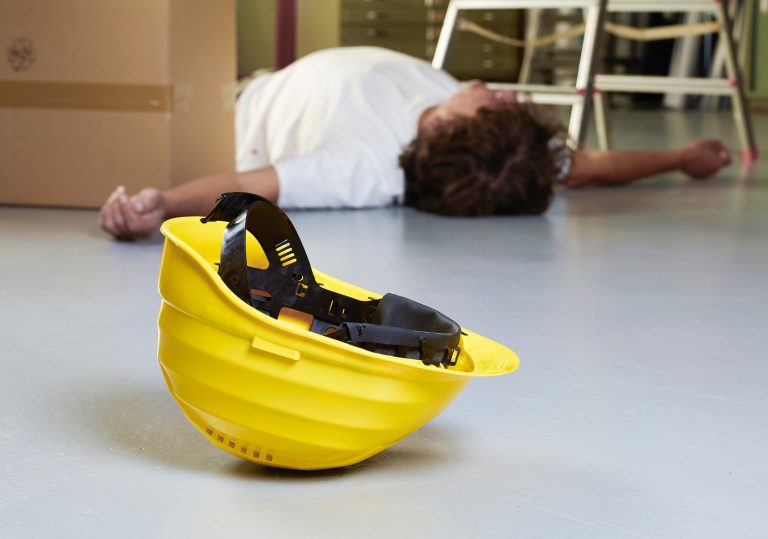BLOG
7 workplace safety tips for 2021
January 2020 began with a sense of optimism. Unfortunately, coronavirus soon cast a shadow over the new decade’s start.
Firms were forced to adapt to changing government guidelines, the threat of infection focused employers’ attention on workers’ health, safety and welfare in ways that nobody could have imagined, and entire workplace practices were revised to enable activities to continue safely, with huge numbers of staff working remotely or in a socially distanced manner.
Despite the encouraging rollout of the COVID vaccine, it’s likely to be some time before organisations return to some kind of normality. What’s more, last year’s ‘normality’ saw the Health and Safety Executive (HSE) reporting 111 work-related fatalities un-related to COVID, plus 693,000 non-fatal injuries. With numbers like this, workplace safety remains a high priority for organisations in 2021.
Our Health & Safety experts share seven safety tips to help you reduce the risk of incidents in the year ahead.
1. Report unsafe conditions
Health and safety is a collective effort. Workers should be encouraged to report unsafe conditions to managers as soon as they notice that something isn’t right. From a wet floor to a precariously stacked shelf, make sure that staff feel able to speak up, as this is your first line of defence against incidents and essential to maintaining a safe workplace.
All employees should be actively involved in workplace safety and should feel able to raise concerns, put forward suggestions, and take responsibility for themselves and their colleagues as often as possible.
Remember, employers are legally required to create and maintain a safe working environment, so if something is flagged as unsafe, managers must correct it as soon as possible.
Free Download: Definitive Guide to General Risk Assessments
Identify risks and keep your business compliant with this free guide.
2. Make sure machinery and tools are used correctly
Workplace safety procedures exist to keep people safe. It’s essential that machinery and tools are used in the correct way, according to the manufacturer’s instructions and any safe systems of work in place. Shortcuts can lead to injury and just aren’t worth the seconds that might be saved, so take the time to identify and correct any bad habits that may have crept in.
As an employer, you are legally required to make sure your employees are well aware of workplace risks and properly trained. This all starts with a thorough induction. If you’re planning to take on new staff in 2021, keep in mind that workers are at particular risk of injury in their first six months, when they are more likely to be unaware of existing or potential risks. Young people will often be in this category.
Investing time and money in a thorough workplace safety training and monitoring programme will save you a lot of time, money and stress in the long run.

3. Enforce regular breaks
The Working Time Regulations 1998 provide that workers are entitled to an uninterrupted break of 20 minutes when daily working time is more than six hours.
Taking a break is not just required by legislation, it’s common sense too; when workers are tired, they are more prone to incidents because awareness of their surroundings is hampered by exhaustion. Taking a break will help to combat fatigue, so see to it that employees do so.
4. Make tackling stress a priority
One in four people in the UK will experience some kind of mental health problem in any given year. Work can aggravate pre-existing conditions and problems at work can bring on symptoms or make their effects worse.
Whether work is causing the health issue or exacerbating it, employers have a legal responsibility to support their employees. Where a risk is identified, steps must be taken to remove it or reduce it as far as reasonably practicable; consider improving conditions at work or making adjustments to help someone manage a mental health problem at work.
The HSE recommends using its “Management Standards”, which establish a framework to help employers tackle work-related stress and, as a result, reduce the incidence and negative impact of mental ill health.

5. Invest in the right safety gear
Proper safety gear is a must when it comes to workplace safety, particularly when operating machinery or working with hazardous materials. Proper footwear is also important, as it will help to prevent slips or falls.
Be sure to provide employees with the necessary protective equipment and make sure that they continue to make use of the safety gear provided. Now might be the right time for a reminder of its importance.
6. Consider a health and safety survey
Issue a survey to find out how employees feel about health and safety – everything from managerial commitment to the effectiveness of training. This can help to inform your health and safety strategy plan for 2021, as responses should provide insight into areas of concern and opportunities for improvement. It will also demonstrate to staff that you are interested in their views, open to feedback, and committed to ensuring their safety and welfare.
7. Encourage people to move more
One in four occupational injuries is related to lower-back strain. While such injuries are often caused by lifting and twisting, they can also be caused by poor posture, such as from extended sitting in an awkward position.
With many people still working from home, encourage workers to stand up and move more. Taking a five-minute desk break every hour can be highly effective in reducing the risk of musculoskeletal disorders. Similarly, now that remote working is a more permanent arrangement for many, make sure you have conducted a homeworking risk assessment which covers DSE use and workstation set-up.
Other safety tips to start the year off right
The start of a new year is a perfect time to reflect on what you have learned over the past 12 months, revisit your documentation, and remind staff of the importance of safe practices and the measures you are taking to keep them safe.
Have you:
- Got a health and safety committee? If not, consider forming one to facilitate employee engagement and cooperation.
- Reviewed last year’s performance (accidents, incidents and near misses)? If not, you may be missing important learning lessons.
- Set targets for improvement? It’s important to have clear goals to work towards.
- Reviewed your risk risk assessments? It’s good practice to do this annually, particularly as some may have been impacted by your COVID-19 control measures.
- Considered your training needs? Training is key to driving down accidents, so ask yourself whether there are any gaps or whether staff are in need of a refresher.
All of these things will keep your organisation working towards the same goal of a healthy and accident-free workplace.
Time for expert Health & Safety support?
The past 12 months have highlighted the importance of good workplace health and safety management, as well as the amount of time and attention this can demand, particularly if you don’t have access to expertise in house.
If you could use a little extra help staying on top of your responsibilities, our hands-on, fixed-fee Health & Safety service is the perfect solution. Acting as one of your legally-required competent persons, Ellis Whittam can help you to take the hassle out of health and safety and become confident in your compliance in 2021, starting with an expert review of your current policies, practices and procedures.
To talk through your needs and find out more about our support for employers, call 0345 226 8393 or request your free consultation using the button below.
Sign up for the latest news & insights
Resources
Latest News & Insights

Work from wherever? | Things to consider before allowing employees to work from abroad
BLOG Written by Alexandra Farmer on 25 May 2022 A few years ago, the idea of working from anywhere in the world seemed like a pipe dream.

Reduced workforce? Here’s 5 health and safety areas you need to revisit
BLOG Written by Charles Spencer on 18 May 2022 In 2022, a growing number of businesses have moved, or are in the process of moving,

Fee for Intervention | Why health and safety breaches could cost your business more in 2022
BLOG Written on 16 May 2022 It’s a well-known fact that poor health and safety practices cost businesses money. And with the HSE recently announcing yet another

Remote work isolation | How employers can help combat loneliness
BLOG Written on 12 February 2021 While the benefits of remote work are seemingly boundless, often overlooked is the isolation and disconnectedness that it can

Time off for getting married or moving house
BLOG Written on 12 May 2022 There are certain big life events that can sometimes get in the way of work. Whether it’s a wedding

Recent cases highlight continued work at height failings
BLOG Written on 6 May 2022 Working at height continues to be the leading cause of work-related fatality. According to most recent HSE figures, these

Managing organisational change | How to keep people happy
BLOG Written on 28 February 2022 In the direst of circumstances, humanity’s true capacity for adaptation and perseverance can be realised. Where the business world

5 ways to combat 2022’s recruitment challenges when you can’t pay more
BLOG Written by Christian Vincent and Hannah Copeland on 15 April 2022 In 2022, recruitment and retention are fast becoming employers’ biggest challenges. With people

A war of words | Managing employees’ political views on the Russia-Ukraine conflict
BLOG Written by Lesley Rennie on 13 April 2022 The war in Ukraine, and the daily news reports of fatalities, continues to spark conversation in



